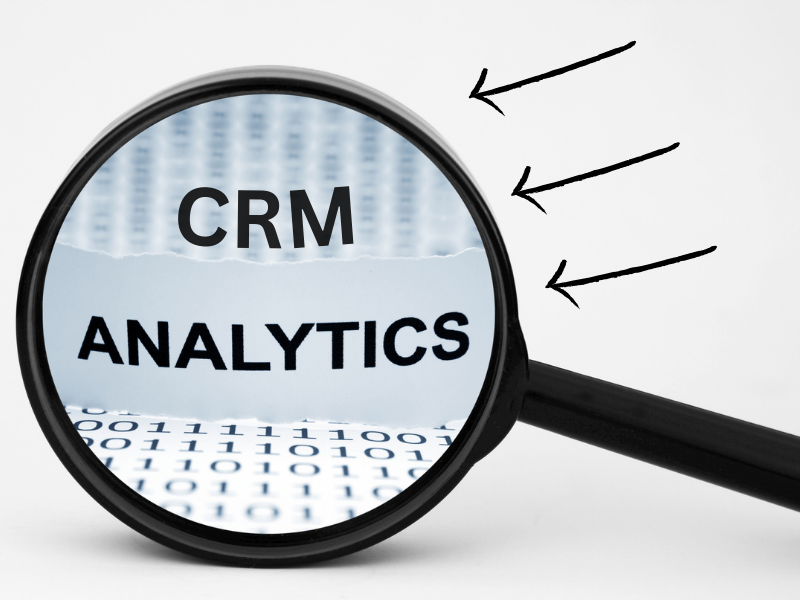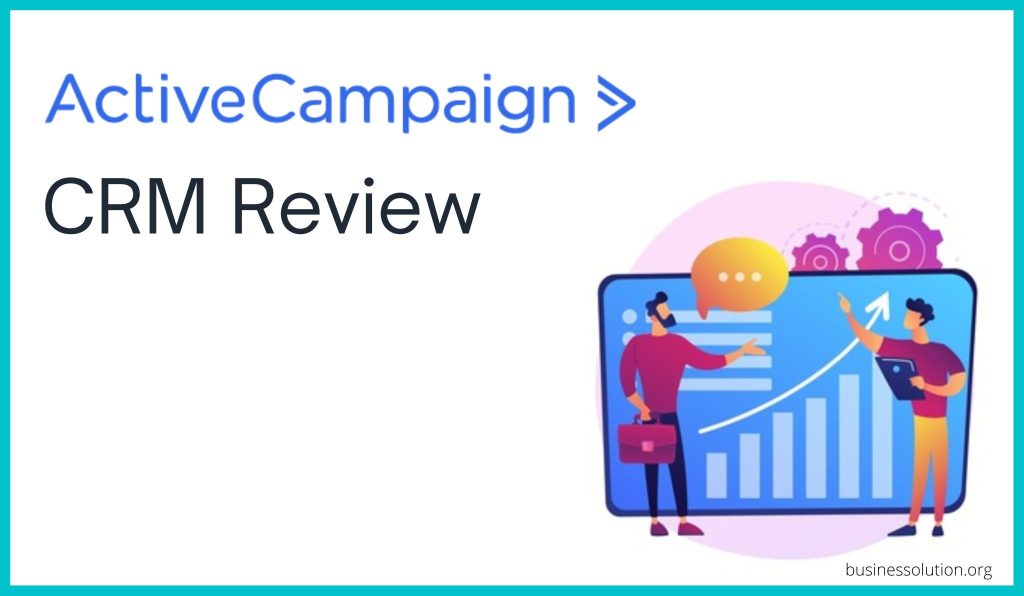Unlocking Growth: A Deep Dive into CRM Marketing Analytics Tools

Introduction: The Power of Data in Modern Marketing
In today’s hyper-competitive business landscape, understanding your customers is no longer a luxury; it’s a necessity. The companies that thrive are those that can effectively collect, analyze, and act upon customer data. This is where CRM marketing analytics tools come into play. They are the engines that drive data-driven decision-making, enabling businesses to personalize customer experiences, optimize marketing campaigns, and ultimately, boost revenue. This article delves deep into the world of CRM marketing analytics, exploring their benefits, functionalities, and how to choose the right tools for your specific needs.
What are CRM Marketing Analytics Tools?
At their core, CRM (Customer Relationship Management) marketing analytics tools are sophisticated software solutions designed to help businesses understand and manage their interactions with customers. They go far beyond simple contact management; they provide a comprehensive view of the customer journey, from initial interaction to purchase and beyond. These tools collect data from various sources, including website visits, email interactions, social media engagement, and sales transactions. This data is then analyzed to provide insights into customer behavior, preferences, and needs.
The ‘analytics’ component is crucial. It’s not just about storing data; it’s about transforming raw information into actionable intelligence. These tools use a variety of analytical techniques, such as:
- Descriptive Analytics: This involves summarizing past data to understand what has happened. For example, it might show you the number of leads generated last month or the average order value.
- Diagnostic Analytics: This goes a step further, exploring why something happened. For instance, it might analyze why a particular marketing campaign performed poorly.
- Predictive Analytics: This uses historical data to forecast future trends and outcomes. For example, it might predict which customers are most likely to churn.
- Prescriptive Analytics: This provides recommendations on how to improve future outcomes. For example, it might suggest the best marketing channels to target specific customer segments.
Benefits of Using CRM Marketing Analytics Tools
The advantages of implementing CRM marketing analytics tools are numerous and far-reaching. Here are some of the most significant:
Enhanced Customer Understanding
Perhaps the most significant benefit is the ability to gain a deeper understanding of your customers. These tools provide a 360-degree view of each customer, including their demographics, purchase history, communication preferences, and engagement with your brand. This allows you to:
- Personalize Marketing: Tailor your messaging and offers to individual customer preferences, leading to higher engagement and conversion rates.
- Segment Customers: Group customers based on shared characteristics, allowing you to target specific segments with relevant campaigns.
- Identify Customer Needs: Understand what your customers want and need, enabling you to develop products and services that meet their demands.
Improved Marketing Campaign Performance
CRM marketing analytics tools empower you to optimize your marketing campaigns for maximum impact. They provide valuable insights into:
- Campaign Effectiveness: Track the performance of each campaign, identifying what’s working and what’s not.
- Channel Optimization: Determine which marketing channels are most effective at reaching your target audience.
- Lead Generation: Identify the most effective lead generation strategies.
- ROI Measurement: Accurately measure the return on investment (ROI) of your marketing efforts.
Increased Sales and Revenue
By improving customer understanding and optimizing marketing campaigns, these tools directly contribute to increased sales and revenue. They help you:
- Increase Conversion Rates: Convert more leads into customers by personalizing your messaging and offers.
- Improve Customer Retention: Identify and address customer churn risk factors.
- Increase Customer Lifetime Value (CLTV): Maximize the revenue generated from each customer over the course of their relationship with your brand.
Streamlined Sales Processes
CRM marketing analytics tools can also streamline your sales processes by providing salespeople with valuable insights and tools. They help you:
- Prioritize Leads: Identify the most promising leads and focus your sales efforts on them.
- Improve Sales Forecasting: Accurately predict future sales based on historical data.
- Track Sales Performance: Monitor the performance of your sales team and identify areas for improvement.
Better Decision-Making
Ultimately, CRM marketing analytics tools empower you to make better, data-driven decisions across all aspects of your business. They provide the insights you need to:
- Reduce Risk: Make informed decisions based on data, reducing the risk of costly mistakes.
- Identify Opportunities: Discover new market opportunities and growth areas.
- Improve Efficiency: Optimize your processes and workflows for maximum efficiency.
Key Features of CRM Marketing Analytics Tools
While the specific features of CRM marketing analytics tools vary depending on the vendor, there are several core functionalities that are common to most platforms. These include:
Customer Segmentation
This feature allows you to divide your customer base into distinct groups based on shared characteristics, such as demographics, purchase history, and behavior. This is essential for targeted marketing campaigns. You can segment your customers based on various criteria, including:
- Demographics: Age, gender, location, income, etc.
- Psychographics: Interests, values, lifestyle, personality, etc.
- Behavior: Purchase history, website activity, email engagement, etc.
- RFM Analysis: Recency, Frequency, Monetary value – a common method for customer segmentation.
Lead Scoring
Lead scoring is the process of assigning a numerical value to leads based on their behavior and engagement with your brand. This helps you prioritize leads and focus your sales efforts on the most promising prospects. Leads are scored based on various factors, including:
- Website activity: Pages visited, downloads, time spent on site, etc.
- Email engagement: Opens, clicks, responses, etc.
- Social media engagement: Likes, shares, comments, etc.
- Demographic information: Job title, company size, industry, etc.
Campaign Management
This feature allows you to plan, execute, and track your marketing campaigns. It provides tools for creating and managing email campaigns, social media campaigns, and other marketing initiatives. Campaign management features typically include:
- Email marketing automation: Sending automated email sequences based on customer behavior.
- Social media scheduling: Planning and scheduling social media posts.
- Landing page creation: Creating and managing landing pages to capture leads.
- A/B testing: Testing different versions of your marketing materials to optimize performance.
Reporting and Dashboards
Reporting and dashboards provide a visual overview of your marketing performance. They allow you to track key metrics, identify trends, and make data-driven decisions. Reports and dashboards typically include:
- Key Performance Indicators (KPIs): Track important metrics such as website traffic, lead generation, conversion rates, and ROI.
- Customizable dashboards: Create dashboards that display the metrics most relevant to your business.
- Data visualization: Use charts and graphs to visualize your data and identify trends.
Customer Journey Mapping
Customer journey mapping helps you visualize the steps your customers take as they interact with your brand. This allows you to identify pain points and opportunities for improvement. It involves tracking the customer’s experience from the moment they first encounter your brand to the point of purchase and beyond.
Integration Capabilities
The ability to integrate with other business systems is crucial for a CRM marketing analytics tool. This allows you to seamlessly share data between different platforms, such as your website, email marketing platform, and e-commerce platform. Integrations often include:
- Email Marketing Platforms: Mailchimp, Constant Contact, etc.
- Social Media Platforms: Facebook, Twitter, LinkedIn, etc.
- E-commerce Platforms: Shopify, WooCommerce, Magento, etc.
- Accounting Software: QuickBooks, Xero, etc.
Choosing the Right CRM Marketing Analytics Tool
Selecting the right CRM marketing analytics tool is a critical decision that can significantly impact your marketing success. Here’s a step-by-step guide to help you make the right choice:
1. Define Your Needs and Goals
Before you start evaluating different tools, it’s essential to clearly define your needs and goals. What are you hoping to achieve with a CRM marketing analytics tool? What specific problems are you trying to solve? Consider the following questions:
- What are your marketing objectives? (e.g., increase lead generation, improve customer retention, boost sales)
- What data do you need to track? (e.g., website traffic, email engagement, sales data)
- What features are essential? (e.g., lead scoring, campaign management, reporting)
- What is your budget?
- What is the size of your business? (Small, medium, or large)
2. Research and Evaluate Different Tools
Once you have a clear understanding of your needs, it’s time to research and evaluate different CRM marketing analytics tools. Consider the following factors:
- Features: Does the tool offer the features you need?
- Ease of Use: Is the tool easy to learn and use?
- Integration Capabilities: Does the tool integrate with your existing systems?
- Scalability: Can the tool scale to meet your future needs?
- Pricing: Does the tool fit within your budget?
- Reviews and Ratings: What are other users saying about the tool?
- Customer Support: Does the vendor offer good customer support?
3. Consider Your Budget
CRM marketing analytics tools come in a variety of price points, from free to enterprise-level. Determine your budget and stick to it. Consider the total cost of ownership, including the cost of the tool itself, as well as any implementation costs, training costs, and ongoing maintenance fees.
4. Look for Scalability
Choose a tool that can scale to meet your future needs. As your business grows, you’ll need a tool that can handle increased data volume and more complex marketing campaigns.
5. Prioritize Ease of Use
Choose a tool that is easy to learn and use. If the tool is too complex, your team may be hesitant to use it, and you won’t be able to realize its full potential. Look for a tool with a user-friendly interface and intuitive features.
6. Integration is Key
Ensure the tool integrates with your existing systems, such as your website, email marketing platform, and e-commerce platform. This will allow you to seamlessly share data between different platforms and gain a more complete view of your customers.
7. Take Advantage of Free Trials and Demos
Most CRM marketing analytics tool vendors offer free trials or demos. Take advantage of these to test the tool and see if it’s a good fit for your business. This will give you a chance to evaluate its features, ease of use, and integration capabilities.
8. Read Reviews and Ratings
Before making a final decision, read reviews and ratings from other users. This will give you valuable insights into the tool’s strengths and weaknesses. Look for reviews from businesses similar to yours.
9. Consider Customer Support
Make sure the vendor offers good customer support. You’ll likely need help at some point, so it’s important to choose a vendor that provides responsive and helpful support.
10. Implement and Train Your Team
Once you’ve chosen a tool, implement it and train your team on how to use it. Provide ongoing training and support to ensure that your team is using the tool effectively.
Top CRM Marketing Analytics Tools in the Market
The CRM marketing analytics landscape is vast, with numerous tools vying for your attention. Here’s a look at some of the top players in the market, each offering a unique set of features and capabilities:
HubSpot CRM
HubSpot is a popular all-in-one marketing and sales platform that offers a free CRM with powerful analytics capabilities. It’s known for its user-friendliness and ease of use, making it a great choice for small to medium-sized businesses. HubSpot’s analytics features include:
- Contact Management: Centralized storage of customer data.
- Deal Tracking: Monitor sales progress and pipeline.
- Website Activity Tracking: See which pages contacts are visiting.
- Email Tracking: See when and how contacts interact with your emails.
- Reporting Dashboard: Customizable reports on key metrics.
Salesforce Sales Cloud
Salesforce is a leading CRM platform that offers a comprehensive suite of marketing and sales tools, including powerful analytics. It’s a good choice for larger businesses with complex needs. Salesforce’s analytics features include:
- Salesforce Einstein: AI-powered analytics for insights and predictions.
- Customizable Dashboards: Create dashboards to track key performance indicators (KPIs).
- Advanced Reporting: Generate detailed reports on sales performance, marketing campaigns, and customer behavior.
- Data Visualization: Use charts and graphs to visualize your data.
- Integration with other Salesforce products: Seamless integration with other Salesforce products, such as Marketing Cloud.
Zoho CRM
Zoho CRM is a versatile CRM platform that offers a range of features for sales, marketing, and customer service. It’s a good choice for businesses of all sizes. Zoho’s analytics features include:
- Sales Analytics: Track sales performance, identify trends, and forecast future sales.
- Marketing Analytics: Analyze the performance of your marketing campaigns.
- Customer Journey Analytics: Understand how customers interact with your brand.
- Customizable Reports: Create reports to track the metrics that are most important to your business.
- AI-powered Insights: Get AI-powered insights to improve sales and marketing performance.
Pipedrive
Pipedrive is a sales-focused CRM that’s known for its simplicity and ease of use. It’s a good choice for small to medium-sized businesses that are looking for a CRM that’s focused on sales. Pipedrive’s analytics features include:
- Sales Pipeline Reporting: Visualize your sales pipeline and track your progress.
- Deal Tracking: Track the progress of your deals and identify areas for improvement.
- Activity Reporting: Track the activities of your sales team.
- Goal Tracking: Set and track sales goals.
- Customizable Reports: Create reports to track the metrics that are most important to your business.
Freshsales
Freshsales is a sales CRM that offers a range of features for sales and marketing, including powerful analytics. It’s a good choice for businesses of all sizes. Freshsales’s analytics features include:
- Sales Analytics: Track sales performance, identify trends, and forecast future sales.
- Conversation Intelligence: Analyze sales calls and identify areas for improvement.
- Lead Scoring: Prioritize leads based on their behavior and engagement.
- Customizable Reports: Create reports to track the metrics that are most important to your business.
- Real-time Dashboards: Get real-time insights into your sales performance.
Advanced Analytics and Emerging Trends
The field of CRM marketing analytics is constantly evolving, with new technologies and trends emerging all the time. Staying abreast of these advancements is critical for maintaining a competitive edge. Some key areas to watch include:
Artificial Intelligence (AI) and Machine Learning (ML)
AI and ML are playing an increasingly important role in CRM marketing analytics. These technologies can be used to automate tasks, provide deeper insights, and make more accurate predictions. AI-powered tools can:
- Automate Data Analysis: Automatically identify patterns and trends in your data.
- Personalize Customer Experiences: Tailor your marketing messages and offers to individual customer preferences.
- Predict Customer Behavior: Forecast customer churn, predict future sales, and identify the best leads.
- Improve Campaign Performance: Optimize your marketing campaigns in real-time.
Big Data Analytics
As businesses collect more and more data, the ability to analyze large datasets becomes increasingly important. Big data analytics tools can help you process and analyze massive amounts of data to gain valuable insights. This involves using technologies such as:
- Data Warehousing: Storing large datasets in a centralized repository.
- Data Mining: Discovering patterns and trends in large datasets.
- Data Visualization: Creating charts and graphs to visualize your data.
- Real-time Analytics: Analyzing data in real-time to make immediate decisions.
Customer Data Platforms (CDPs)
CDPs are centralized platforms that collect and unify customer data from various sources. They provide a single view of the customer, making it easier to personalize marketing campaigns and improve customer experiences. CDPs can:
- Collect Data from Multiple Sources: Integrate data from websites, email marketing platforms, social media, and other sources.
- Unify Customer Data: Create a single view of each customer.
- Segment Customers: Group customers based on shared characteristics.
- Personalize Marketing Campaigns: Tailor your marketing messages and offers to individual customer preferences.
Predictive Analytics
Predictive analytics is the use of statistical techniques to predict future outcomes. This can be used to forecast customer behavior, predict sales, and identify the best leads. Predictive analytics tools can:
- Predict Customer Churn: Identify customers who are at risk of leaving your business.
- Forecast Sales: Predict future sales based on historical data.
- Identify the Best Leads: Prioritize leads based on their likelihood of converting.
- Personalize Customer Experiences: Tailor your marketing messages and offers based on predicted customer behavior.
Conclusion: Embracing the Data-Driven Future
CRM marketing analytics tools are no longer optional; they are essential for any business that wants to thrive in today’s data-driven world. By leveraging these tools, you can gain a deeper understanding of your customers, optimize your marketing campaigns, increase sales, and improve your overall business performance. The key is to choose the right tools for your specific needs, implement them effectively, and continuously monitor and analyze your results. As technology continues to evolve, the power of data will only grow. Embracing CRM marketing analytics is not just a smart business decision; it’s a commitment to the future of your success.
By understanding the core concepts, benefits, key features, and emerging trends, you can equip your business to harness the power of data and achieve sustainable growth. The journey towards data-driven marketing is a continuous one, but the rewards are well worth the effort. So, take the first step, explore the options, and unlock the potential of CRM marketing analytics to transform your business.


